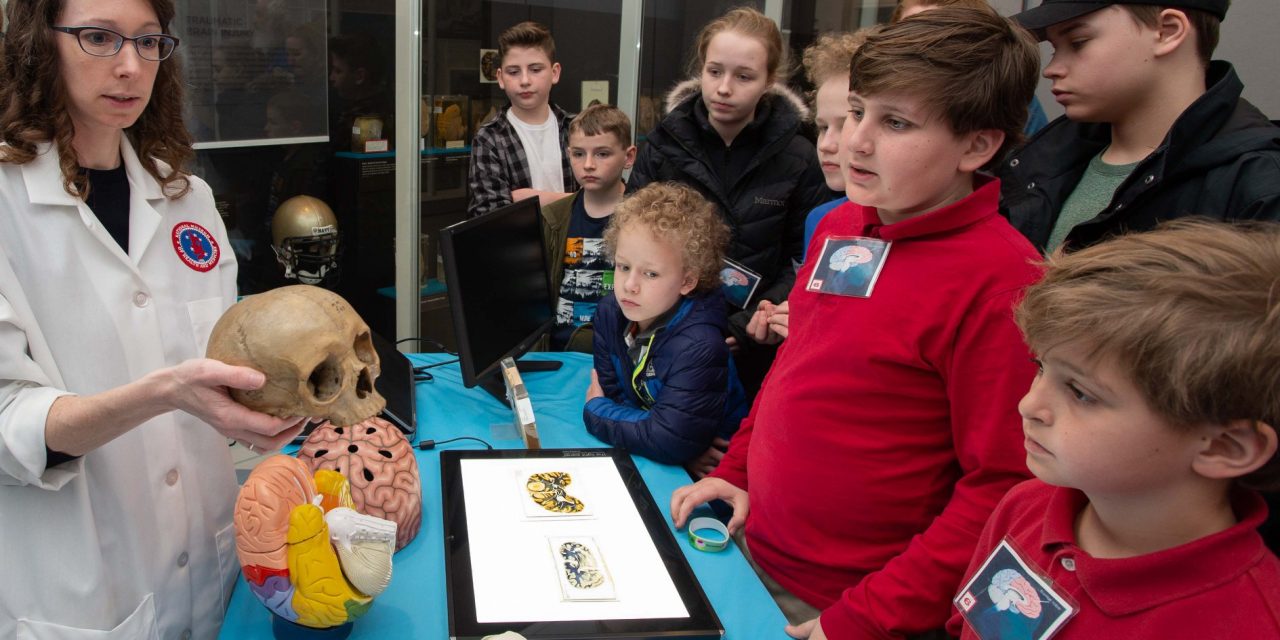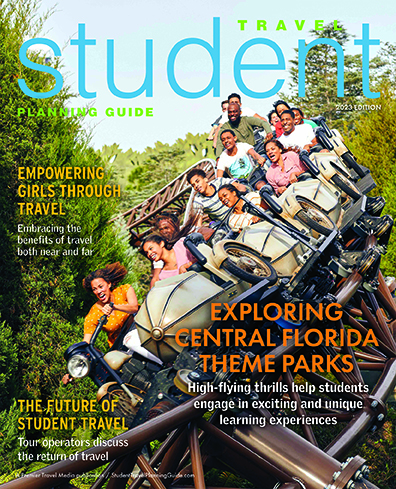The environment is an important part of any science lesson. In these trips throughout the Mid-Atlantic, students can learn and experience different ecosystems and animals while helping conservation efforts.
Science museums are fun, with interactive exhibits and experiments for kids to explore. For students and educators looking for a different kind of immersive experience in science, there are many places in the mid-Atlantic that offer unique opportunities to demonstrate and learn environmental science through learning centers, botanical gardens, animal conservation centers and even barges. Especially now, it’s important for students to learn about protecting and conserving the environment.

Students study DNA in the lab classroom (Credit)
DNA Learning Center – Cold Spring Harbor, New York
Students have a chance to use cutting edge research materials and technology in programs built for young scientists. The middle and high school programs offer an introduction to molecular biology with many different activity options including fingerprinting, gene therapy, DNA models, ancestry, and mutant organisms. The DNA Learning Center allows students a close look at the molecular makeup of the environment.
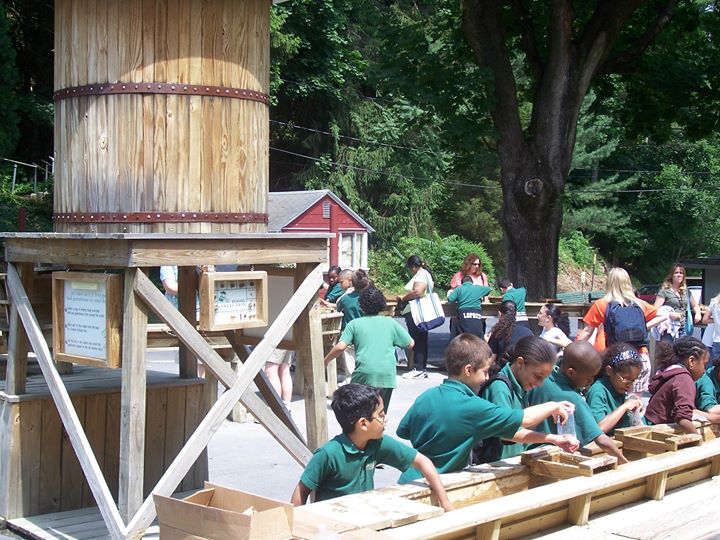
Crystal Cave gem mining (Credit)
Crystal Cave – Kutztown, Pennsylvania
This underground exploration digs deep into geology, earth science and natural history. Along with a guided tour of the caves, student groups have the option to play miniature golf or pan for gemstones. Admission includes a museum and an informative video presentation on the history of the cave itself. Immerse students in a subterranean adventure in the Crystal Cave.
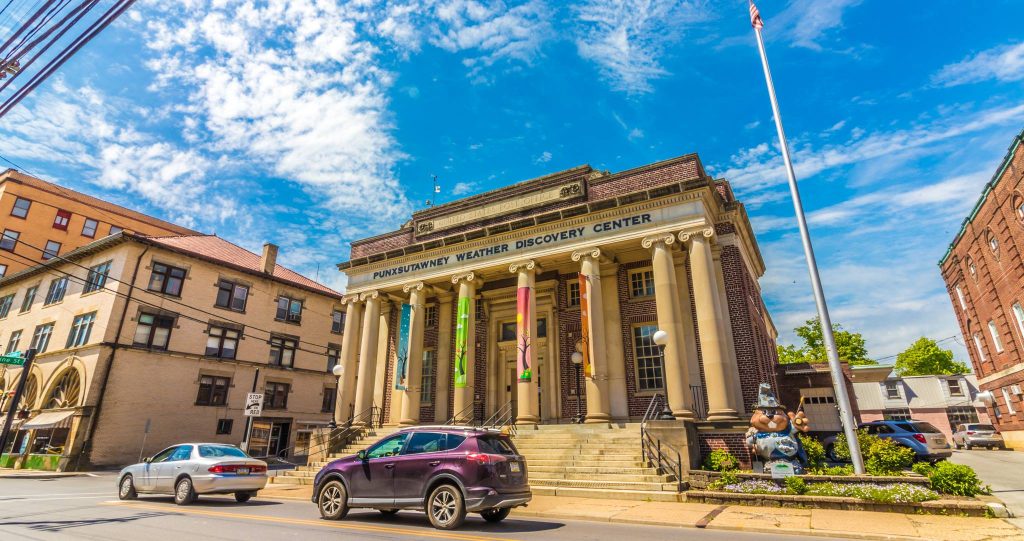
The outside of Punxsutawney Weather Discovery Center (Credit)
Punxsutawney Weather Discovery Center – Punxsutawney, Pennsylvania
Take students to discover the science behind weather prediction and how a groundhog involves itself in the process. There are group packages with options for a guided tour, educational video, classroom activity and even a chance to meet Punxsutawney Phil. Students can become a “phaithphil phollower” while learning about meteorology at the Punxsutawney Weather Discovery Center.
Camden Children’s Garden – Camden, New Jersey
Student groups are welcome to a self-guided tour of the Camden Children’s Garden’s many exhibits or an educational addition to teach about soil, germination, butterflies, photosynthesis, trees and rainforest conservation issues. The garden hosts a school festival where children explore science and prepare a plant to take home and grow. With amusement rides, dinosaur gardens and cultivated trees students embark on a journey of ecological and plant science.

Wolves viewed from a distance at Lakota Wolf Preserve (Credit)
Lakota Wolf Preserve – Columbia, New Jersey
Tour this facility with the owners as you observe wolves from a distance in their natural habitat. With experts answering questions and providing information on the true nature of wolves, students can observe and take pictures of these magnificent creatures in an unforgettable lesson in animal science. Other creatures at the preserve include foxes and bobcats, as each animal is overseen and cared for by the owners at the Lakota Wolf Preserve.
Ashland Nature Center – Hockessin, Delaware
The Ashland Nature Center has multiple education programs for middle and high school students during field trips. From canoeing, raptor migrations, geology, ornithology, forestry and ecology to team building and Native American history. With four miles of trails near the Red Clay Creek, this forested center immerses students in nature with areas to see hawks, butterflies and hummingbirds.
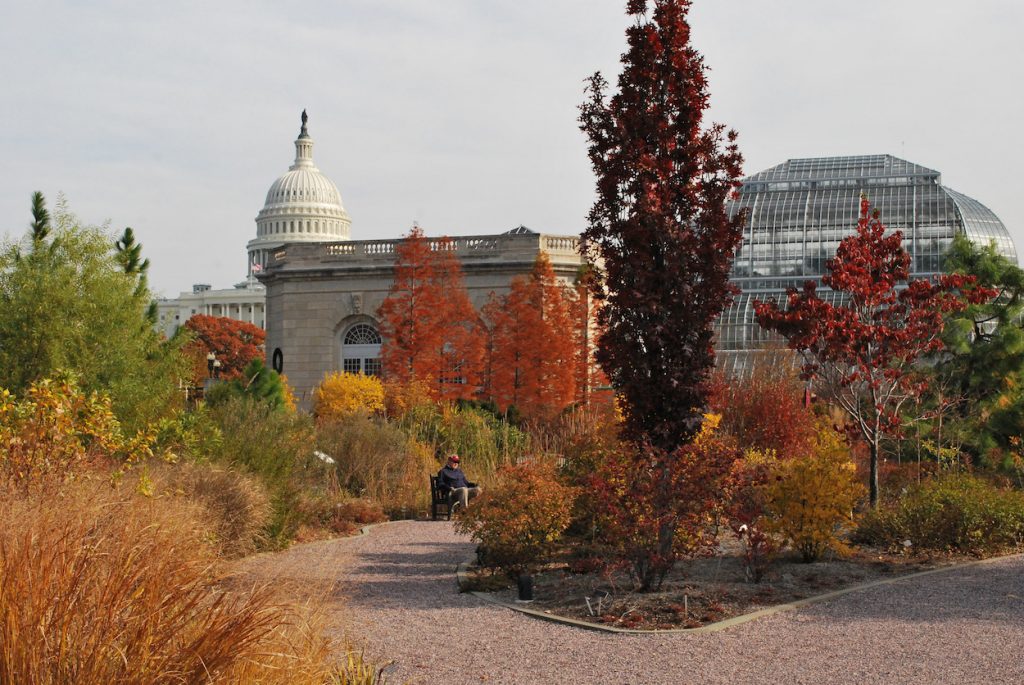
National Garden at the U.S. Botanic Garden in Fall (Credit)
United States Botanic Garden – Washington, D.C.
In the oldest continually operating botanic garden in the United States, students have educational opportunities on the maintained grounds of 10,000 living specimens. There are self-guided tours as well as guided options for the different facilities. Hands-on lessons involve plant seeds, soil, pollination, biomes, photosynthesis, plant classifications, plant conservation and native ecosystems. Students are able to escape the bustling city by exploring nature and its development at the United States Botanic Garden.
National Museum of Health and Medicine – Silver Spring, Maryland
This museum has many interactive tours for small or large groups in health sciences. The general tour includes the museum’s permanent exhibits in military medicine, civil war collections and human body anatomy with helpful teacher guides to supplement learning. There are forensic workshops, medical discovery carts, empathy belly pregnancy simulations and student discovery guides. At the National Museum of Health and Medicine, students can view the science behind medical development through the years.

The Learning Barge (Credit)
The Learning Barge – Norfolk, Virginia
In this mobile ecology system equipped with a lesson room, composting toilets and rainwater filtration system, students learn and observe sustainability for the environment. Students can rotate through stations on this wind and sun powered barge teaching about salinity, animal behavior, habitats, rising sea levels, animal anatomy, crabs and carbon footprints. Take a voyage on The Learning Barge in a floating classroom to research how to protect the environment with renewable energy.
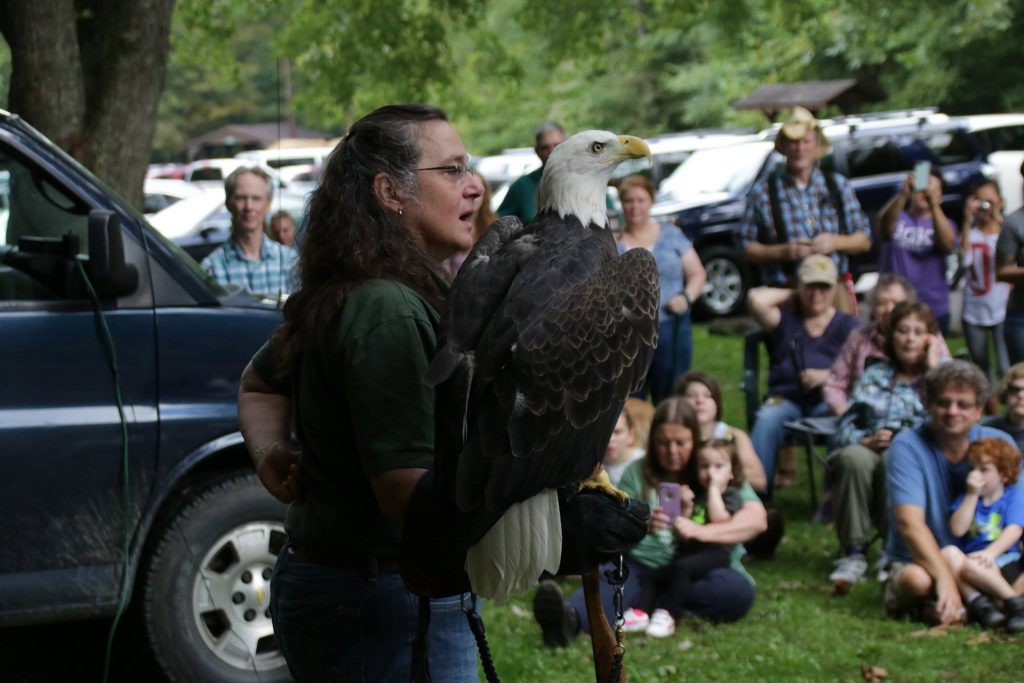
Three Rivers Avian Center bird lesson (Credit)
Three Rivers Avian Center – Hinton, West Virginia
The Three Rivers Avian Center delivers education to students in a traveling presentation with birds of prey. The birds are presented with their background and facts about their species and a Q&A with the audience. There are tours of the facility where they house many birds including kestrels, eagles, owls, hawks and falcons. With lessons based around protecting birds’ ecosystems, this non-profit advocates for teaching environmental science for students.

